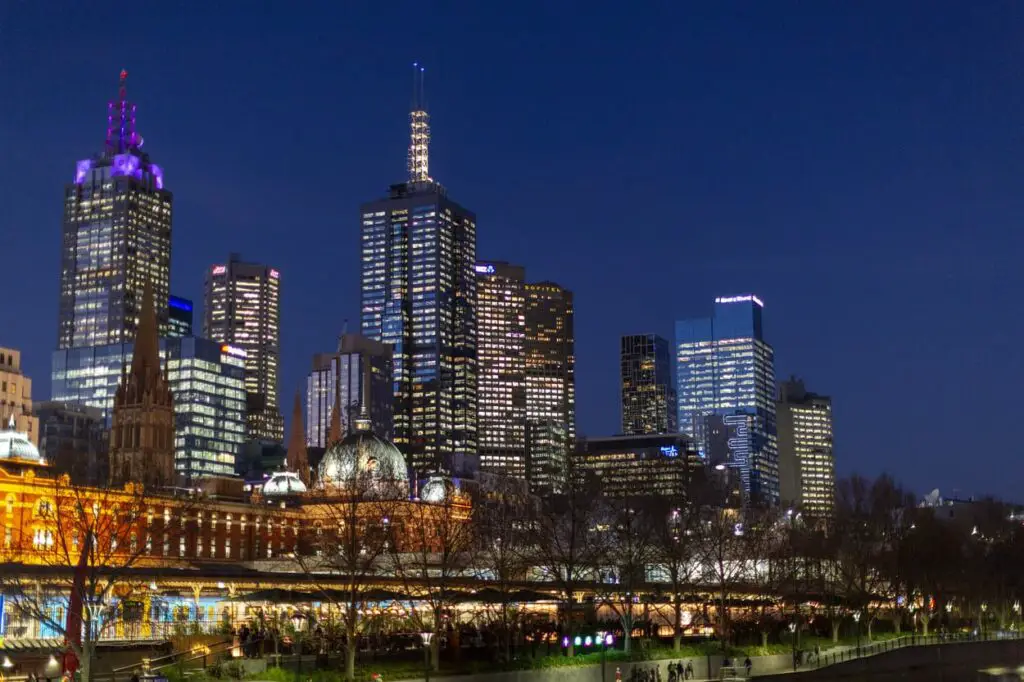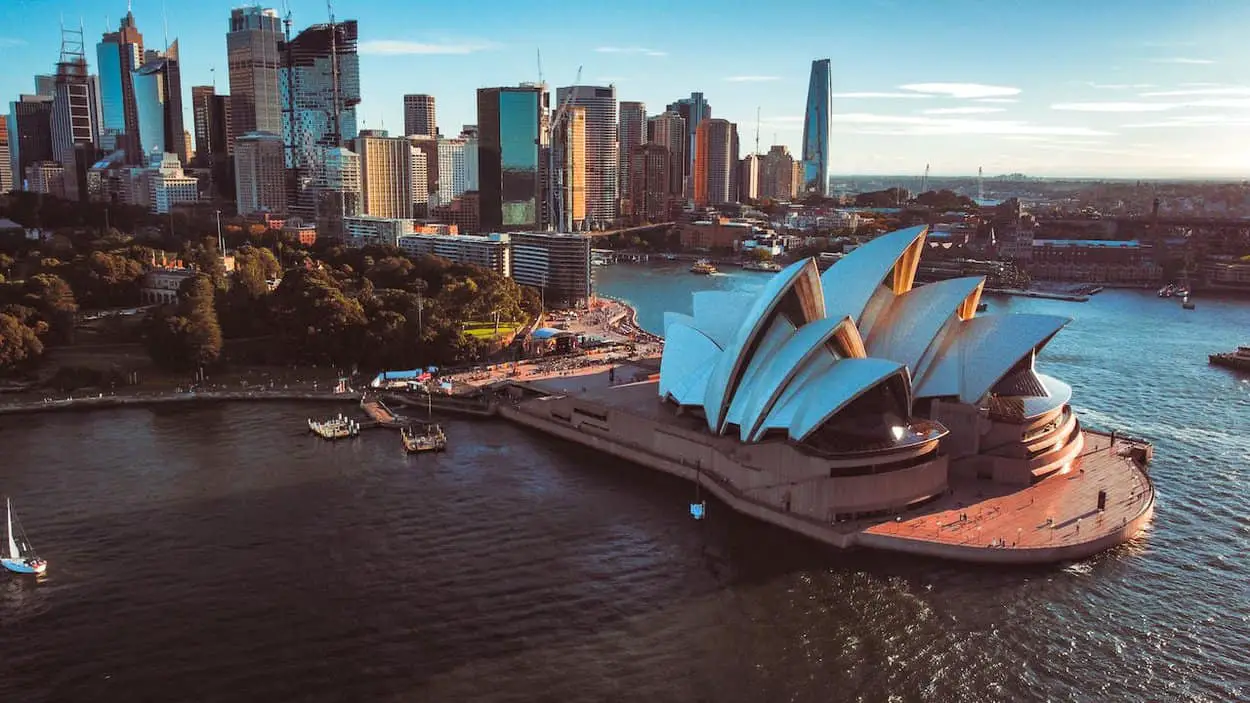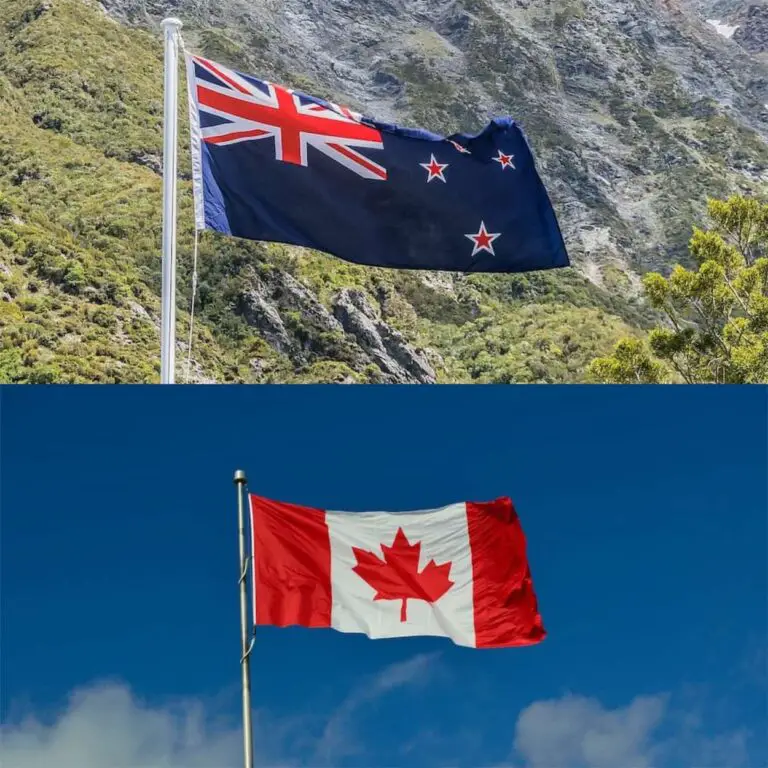How To Move To Australia From New Zealand in 2024
Are you considering moving to Australia from New Zealand? Then you probably are aware that New Zealand isn’t part of Australia, even if clause 6 of the Australian constitution allows NZ to become a state of Australia. Sorry Australia, but New Zealand said no when this was first suggested back in 1901, and it’s not going to happen anytime soon (or ever). And yet there’s a huge amount of cooperation between these neighbouring nations.
It’s surprisingly simple for a Kiwi to move to Australia and for an Aussie to come to NZ. However, the majority of people decide to relocate to Australia from New Zealand, with an estimated 670,000 New Zealanders calling Australia home. In New Zealand, there are only around 70,000 Aussies. Most New Zealanders move across the Tasman in search of greater opportunities and the higher wages that come with those opportunities.
A Kiwi moving across to Australia certainly isn’t going to be a trendsetter, and you definitely won’t be the only Kiwi in town, even if you find the smallest, most isolated town in Australia. Whatever your reasons for moving across the Tasman and becoming a Kiwi expat, how easy is it going to be?
Can you move to Australia from New Zealand?
The easiest way to move to Australia from New Zealand is to buy a plane ticket—it can even be a one-way flight. Nobody is going to be suspicious about the lack of a return flight. New Zealanders can use the e-passport gate at Australian airports, but even aside from this—nobody is going to be suspicious because a New Zealander can arrive in Australia and stay as long as they like—mostly.
New Zealand citizens with criminal convictions need permission from the Australian High Commission before booking their travel. Failure to do so can mean you will be denied entry to Australia and may be prevented from entering the country for a predetermined period of time afterwards (which could be months or even years).
If you’re a New Zealand permanent resident who travels on a non-New Zealand passport, you may need to apply for a visa before travelling to Australia. It’s important to check your status and any visa obligations long before travelling to Australia.
A New Zealand citizen can immediately work or study in Australia, although employment means you must have an Australian tax file number (TFN), an Australian bank account, and in most cases—an Australian superannuation account (for retirement). These things are easy to set up, and we’ll take you through the details a little later.
Moving to Australia from New Zealand: Guide
Surely moving from Aotearoa New Zealand to the other land of OZ isn’t as easy as just buying a plane ticket and flying for about 3.5 hours? Maybe it’s not quite that easy, but it’s not that complicated either—especially with this guide that we’ve carefully assembled for you.
1. Apply for your Australian tax file number as quickly as you can. The application is online (and mostly automated), but you can’t work without this number, so get the process started as soon as possible—because it can take up to 28 days to receive your TFN.
2. Open an Australian bank account with a bank of your choosing. This process can sometimes begin before you move. Some banks in New Zealand are subsidiaries of Australian banks (Westpac, ANZ, and ASB—whose parent company is Australia’s Commonwealth Bank), which makes moving your money nice and easy.
You can usually open your Australian bank account before you leave NZ (even an entirely new account with a new bank), but the account will be on hold until you arrive in Australia. The account will be finalised and activated once you show your ID and tax residency details (so hurry up and get that TFN).
Your TFN means that your tax obligations will be met by your employer (with the correct tax rate automatically deducted from your salary). Your tax rate is largely determined by your income bracket.
3. You’ll also need an Australian superannuation account. You might find it easier to simply activate a separate account for your super with your new Australian bank. Don’t use this as the default option, though, and make sure that any financial product or service meets your needs. Once you have an Australian super account, you can transfer your Kiwi saver (NZ super) funds to Australia, or leave them where they are.
4. Register for Medicare as soon as possible. This is Australia’s universal healthcare scheme, which New Zealand citizens can join. You’ll receive a Medicare card (which is a useful ID for setting up your new Australian life), and this gives you access to subsidised medical care, where available (known as bulk billing), and discounted prescriptions. Additional (private) health insurance isn’t mandatory, but can be smart.
5. If you have children, you can just enrol them at the nearest school—as long as you live within the catchment zone for the school in question.
Working in Australia
You may have moved to Australia after receiving a job offer (which isn’t essential before you travel) or might plan to start looking for employment after you arrive. Australia’s almost 27 million residents (compared to New Zealand’s 5.26 million) means there are more employment opportunities in Australia than in NZ—and more diverse opportunities too.
These diverse opportunities lead to more diverse salaries. This may lead us to the main reason New Zealanders move to Australia—the cash and the future opportunities this income can create. The average wage in Australia is NZ$102,500, compared to NZ$77,844 in New Zealand.
The potential for (a lot of) extra money in Australia is probably the biggest pro for moving across the Tasman, and yeah, Australia can feel less isolated than New Zealand. It has a range of major cities (instead of just one), and for those who prefer warmer climates, the weather can be way more favourable. The biggest downside is the family and friends you’ll leave behind, although you won’t have to try very hard to find some fellow Kiwis.
Moving to Australia: Checklist
Here’s your to-do list detailing exactly what you’ll need to do before you relocate from New Zealand to Australia.
What will you do in Australia? Kiwis are not entitled to Centrelink’s social security assistance (the dole), so you’ll need to explore your possible employment options.
1. When thinking about your job opportunities—will your Kiwi qualifications be recognised? University and polytechnic degrees are automatically recognised. Certain professions that need a licence (medical practitioners, educators, plumbers, electricians) must have their NZ qualifications recognised in Australia, and there’s a simple process for this.
2. Check the validity of your passport. It must be valid for a minimum of six months after your intended travel date. Renew as needed. Are you travelling on a non-New Zealand passport? Check with the Australian authorities about any visas that must be obtained before you travel.
3. Do you have a criminal conviction that means you’ll need written permission to enter Australia? You may be officially classified as a behaviour concern non-citizen. Failure to disclose this on your incoming passenger card means you could face deportation. Your status as a New Zealander won’t offer much protection, as Kiwis can routinely be deported from Australia (and may not be legally allowed to re-enter for years).
4. Contact New Zealand’s Inland Revenue Department to enquire about your tax obligations. You’ll need to activate an Australian Tax File Number once you arrive, but you may be required to retain your New Zealand tax status if you continue to receive income from a New Zealand source.
If known, provide your Australian address to the NZ Electoral Commission. This allows you to vote in New Zealand elections from Australia (if desired).
5. Research your flights. Many international airlines will fly from Asia or the Middle East to New Zealand via Australia. This means there can be more choices than just Qantas, Air New Zealand, or Jetstar. Check with travel agents, travel websites, and individual airlines to find the best possible flight.
6. Make sure any NZ student loans are repaid or that your legal repayment options are being met. This can create gigantic problems for Kiwi migrants. Your debt doesn’t disappear when you leave the country, and when you return to NZ, you may be prevented from leaving again until the debt is paid.
Best places to live in Australia for New Zealanders

Brisbane (Queensland) is the top choice for New Zealanders moving to Australia, and there are more than 111,000 Kiwis living in greater Brisbane. The Gold Coast (roughly an hour to the south) is also appealing to Kiwi migrants.
Queensland Tourism used to describe the state as beautiful one day and perfect the next. It’s this weather (with its noticeable heat) that perhaps encourages so many Kiwis to become one of Brisbane’s 2.6 million residents. The Queensland state government is a major employer, as are many mining companies with branch offices in the city.
Banking and travel are also major industries for the city (and major employers), with the Suncorp banking group, the Bank of Queensland, Virgin Australia Airlines, and the Flight Centre all headquartered in Brisbane. The median house price for Brisbane is AU$779,270 (NZ$835,761).
Sydney (New South Wales) has a population of 5,297,089… which is more than New Zealand’s total population of 5,265,640. The sharply increased population density will take some getting used to for a new Kiwi arrival, but you won’t be alone! Just over 85,000 New Zealanders call greater Sydney home.
The vastness of the big city can be appealing for Kiwis, and for those who don’t like the overwhelming heat of Queensland might prefer Sydney’s weather (which can still be pretty extreme). Summers are more tolerable, though, since the heat doesn’t automatically come with high levels of humidity (which can exceed 90% in Queensland).
Sydney’s weather can be decent, but its real estate market isn’t. The median house price is an eye-watering AU$1,400,000 (Just over NZ$1,500,000). The Woolworths Group (retail) is one of the largest employers in the city, with Westpac and the Commonwealth Bank also being major players. That being said, there are a vast number of different industries in a city this size.
Melbourne (Victoria) and its population of 5,031,195 is another mecca for migrating Kiwis. Some 82,939 New Zealanders have settled in Australia’s second-largest city. It’s a major metropolis that doesn’t have the hustle and bustle of Sydney, and Melbourne manages to simply be cooler than Sydney.
The city is not only cooler than Sydney but cheaper too. The median house price is AU$779,914 (NZ$836,352), which is also cheaper than the median in Auckland). It feels like Australia’s largest employers are evenly distributed between Sydney and Melbourne, which makes it a little strange that Brisbane (not to mention the nearby Gold Coast and Sunshine Coast) is more popular with Kiwi migrants.
Australia Post has its HQ in Melbourne, and so does the Coles Group (retail). The swanky department store chain David Jones has its head office in Melbourne.
How much does it cost to move to Australia from New Zealand?
The Australian dollar is superior to New Zealand’s, so you can expect to lose approximately 7% when converting your funds. You may want to wait until the exchange rate is at its most favourable when you convert a large amount.
One of New Zealand’s largest moving companies estimated the cost of shipping a 20-foot container to Australia as being from NZ$11,790 to NZ$13,290. This is a very rough estimate and covers Australia’s East Coast. Your moving costs can be significantly more depending on where in Australia you’re moving to.
Your monthly expenses in Australia can vary depending on where you live, with Sydney being prohibitively expensive. The average rent for a 3-bedroom home in Sydney is around AU$900 (NZ$965) per week, or AU$3,600 per month (NZ$3,863). Further living expenses for a family of four have been calculated at AU$6,191 per month, not including rent (NZ$6,643).
As such, you can expect to need approximately AU$9,791 per month (NZ$10,506) to live comfortably in a city like Sydney. Your required savings to move to Australia need to reflect this monthly cost—for the number of months you will be in Australia before you begin employment.


![New Zealand vs Singapore: Best For Living And Immigration [2024]](https://simplenewzealand.com/wp-content/uploads/2023/02/IMG_1983-768x576.jpg)

![New Zealand vs UK: Which Country Is Better For Living? [2024]](https://simplenewzealand.com/wp-content/uploads/2023/01/andreas-sjovall-ZZUPu8ARD8U-unsplash-768x432.jpg)
![Ultimate Guide To Cost of Living in New Zealand vs US [2024]](https://simplenewzealand.com/wp-content/uploads/2023/05/Blank-2-Grids-Collage-min-1-768x768.jpg)
![Living in New Zealand vs South Africa [2024 Guide]](https://simplenewzealand.com/wp-content/uploads/2023/01/omer-faruk-bekdemir-5BuxuWIJF1Q-unsplash-768x432.jpg)
